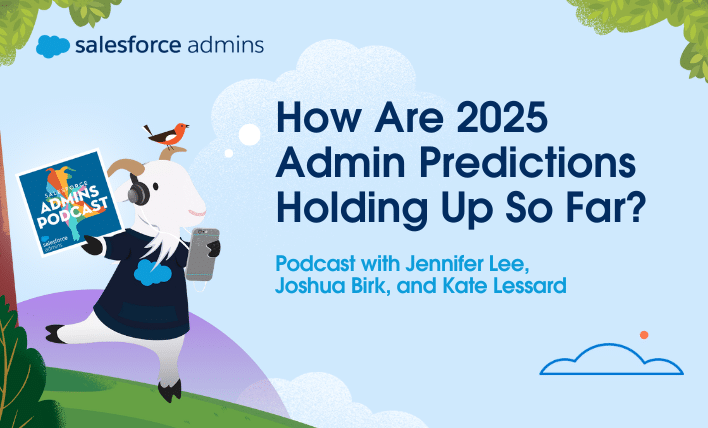Today on the Salesforce Admins Podcast, we talk to Johnjoe Mena, a self-taught admin and Systems Associate Analyst at Salesforce. Join us as we chat about how to get started teaching yourself Salesforce and what to do when you feel overwhelmed. You should subscribe for the full episode, but here are a few takeaways from […]






